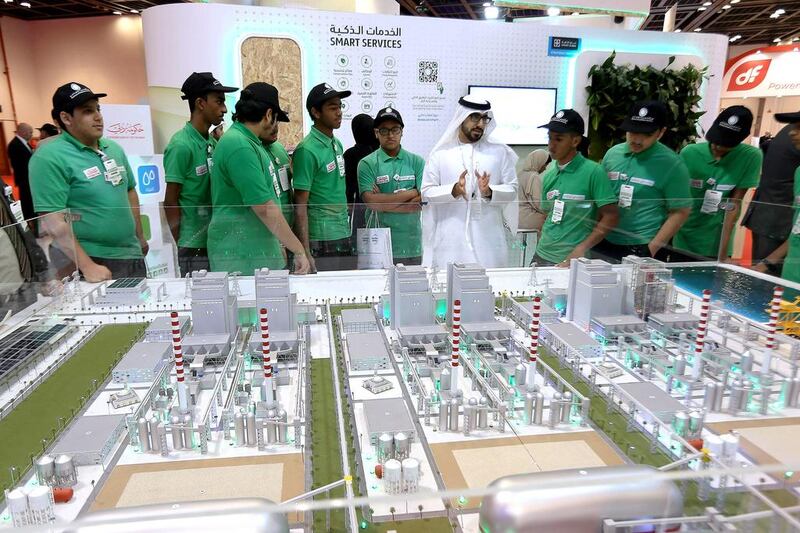Dubai is looking to strike more public-private partnerships (PPPs) in renewables and efficiency-related projects, to help it achieve status as a regional green energy hub.
“The cost of energy for consumers in Dubai is not subsidised, so this is an attractive proposition to private companies,” said Taher Diab, senior director at Dubai’s Supreme Energy Council.
When electricity is subsidised, the government pays a portion of the power consumed to ease the burden on the end user. This creates a financial strain for governments and companies are only able to receive a fixed price for power generation projects. However, under a PPP model, there is more competitiveness in the sector which allows for a higher rate of return for companies. Mr Diab added that when PPP models are clearly defined, it is a “win-win” situation.
Last week marked the beginning of Green Week, hosted by Dubai Electricity and Water Authority (Dewa), which included several events such as the Water, Energy, Technology and Environment Exhibition (Wetex) and the World Green Economy Summit. Exhibitors, totalling more than 1,500 from 46 countries, were hoping to get their name out in the marketplace - particularly in the UAE.
Ben Cotton, external relationship manager of the UK-based investment firm Earth Capital Partners, said that PPPs would grab the attention of potential investors to funnel more funds into projects. “Dubai has taken this [PPP] process to the next level,” he said pointing to the success of the Dubai solar park currently under construction.
The Mohammed bin Rashid Al Maktoum solar park in Dubai will have a capacity of more than 1,000 megawatts upon completion. The first 13MW is already in production, and the second phase totalling 200MW, is set to be complete in 2017. It recently achieved the lowest price for solar in the world to date, based on the PPP model.
In addition to this large-scale project is Dewa’s initiative to increase the number of solar panels installed on commercial and residential buildings in the emirate. The utility provider is currently in the process of approving distributors for the installation of these schemes.
Panasonic said on the sidelines of Wetex that it was looking to apply later so that it could debut its solar panels on the UAE market. “Before there was no clear direction for rooftop solar,” said Anil Roshan Castelino, Panasonic’s Eco Solutions head.
He said that under the new regulations introduced in Dubai the return on investment for its product would be less than five years. Mr Castelino said that Panasonic was unlikely to be the only company looking to introduce its panels. He expects other solar panel manufacturers are paying closer attention to the Dubai market.
“Dubai is spreading the message to the rest of the world that it can be a hub for solar technologies and PPPs,” Mr Diab said.
lgraves@thenational.ae
Follow The National's Business section on Twitter





